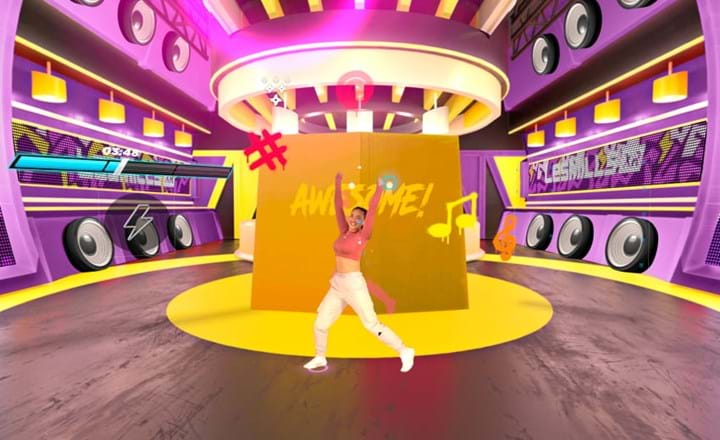
1. Bold plays
In an increasingly competitive market, operators are making bold (and often unconventional) moves to stand out from the crowd and tap into new audiences. Whether it’s Life Time moving towards the medical wellness space and planning to prescribe weight loss injections for members; Anytime Fitness partnering with Apple to offer its members free Apple Fitness+ subscriptions; Pure Gym launching fitness championships for the over 50s; or Planet Fitness offering free summer gym passes to all high schoolers in the US and Canada, operators are ripping up the rule book and making innovative plays to put themselves in the spotlight and win new fans. What comes next in 2024 remains to be seen, but you can bet it won’t be dull.
2. In for the short haul
While time (and a great deal of hard work) has healed most of the sector’s COVID wounds, some scarring remains, with operators in various markets reporting that average membership tenures are now shorter than pre-pandemic.
“On average, club membership lengths are trending shorter,” notes Retention Guru Dr Paul Bedford, caveating that this varies by club and region. “So more clubs are embracing the importance of delivering a great experience to mitigate this – but it’s a long-term commitment if you want to realize the results.”
It’s too early to tell what’s causing shorter memberships in some markets. With Gen Z making up a large proportion of clubs’ new joiners since the pandemic, it could be that the natural life stages of this generation (like going to university and moving to a new city to start a job) are a factor. But faced with shorter membership tenures, the onus is on clubs to protect revenue by increasing the average Lifetime Value (LTV) of their members. Tiered membership pricing is a popular play, while operators like Lifestyle & Health Club Magic are driving significant extra revenue (€249 per participant) by tapping into elevated group training experiences.
3. Under the Influence
If influencers haven’t fully conquered the world by the end of 2024, there’s a decent chance they’ll have taken control of the fitness market. Never slow to embrace a trend, fitness has recently been finding more and more of them originating from influencers – and this pattern looks set to accelerate.
TikTok has firmly established itself as the zeitgeist social media platform for young people, earning a significant amount of influence – particularly when it comes to fitness. #FitTok, the subsect of TikTok populated with workout hacks and fitness tips, has attracted over 62 billion views as of December 2023. And while sometimes the domain of dubious advice and damaging diet and weight loss content, #FitTok is also home to a vibrant community of content creators serving to educate and inspire the next generation of fitness fans.
We’ve seen ‘Cozy Cardio’ come to prominence thanks to US wellness influencer Hope Zuckerbrow, along with TikTok influencers spawning the 12-3-30 treadmill-based workout and countless others. No one has a crystal ball to predict the next 12 months, but when it comes to fitness trends, a doomscroll through your favorite TikTok influencers might well be the next best thing.

4. 50 shades of strength
When is a trend so stratospherically and enduringly popular that it ceases to become a trend? Strength training may hold the answer. Crowned Gen Z’s favorite way to workout, strength training continued to make impressive gains in 2023 and shows no sign of slowing down. Operators across the world have been swapping out cardio equipment for extra weights stations on the gym floor, while a raft of new strength-based classes have quickly come to prominence – particularly as a means of alleviating lengthy queues at the squat racks.
“There’s so much momentum behind strength training right now – more and more people are beginning to understand its importance and building strength has become the most popular way to train,” says Les Mills Program Creator and Presenter Erin Maw, noting that a variety of strength offerings is key to keeping members satisfied. “Through trialing and launching new programs, we’ve seen just how much members love trying different ways to get strong.”
The 2023 report Gen Z Fitness: Cracking the Code found that 64% of Gen Z exercisers have a strong preference for choosing different workouts, as well as discovering new ones. Their enthusiasm for strength and conditioning workouts has led to sculpt workouts – such as Stretch, Yoga and Pilates classes – experiencing a resurgence in clubs as a complementary training modality for building and toning muscle. The Cracking the Code report showed strong appetite for sculpt workouts – with 63% of Gen Z exercisers enjoying Reformer Pilates, 57% doing Yoga, and 55% taking part in mat Pilates – suggesting there’s plenty of demand for more strength variants in 2024.
5. Flex appeal
Live fitness experiences are back and arguably stronger than ever, but at-home digital options aren’t going anywhere either. Having grown up with Amazon Prime and Uber Eats at their fingertips, younger members expect flexible fitness solutions that allow them to work out wherever, whenever and however they want. With 72% of Gen Z regular exercisers taking a hybrid approach that sees them training both in and out of the gym, the age of Omnifitness training is clearly here to stay. Not only does it suit modern lifestyles built around remote working and frequent travel; hybrid training also brings greater motivation. Those who train both in and out of the gym manage to do 67% more workouts than gym-only exercisers (5.5 workouts per week on average Vs 3.3).
“Operators have been buoyed by the strong return of members to clubs, but I think you dismiss digital at your peril,” says Retention Guru Dr Paul Bedford. “It comes back to share of wallet – we know consumers are doing more digital workouts at home, so do you want that service to be provided by your club or by one of your competitors?”
6. The dance revival
A social media sensation with plenty of cultural cachet, dance fitness appears to be getting its groove back. The explosion of TikTok has breathed new life into the category, with dance becoming the unofficial language of TikTok, creating millions of young fans. As club operators expand their presence on TikTok to convert this huge captive audience, dance fitness offerings represent a promising pathway for pulling new fans into the studio.

It’s a tricky category to get right, but when dance is done well, the results can be spectacular. Clubs can build a buzzing and hugely committed member cohort around their studios, as dance tends to attract the people who bring the noise (both in-club and on social media) and love to bring their friends. Expect to see more operators putting their best feet forward with expanded dance fitness offerings in 2024.
7. Boutique 2.0
After a decade of dizzying growth, the pandemic proved particularly tough for boutique operators. With their reliance on office workers and prime city center locations, boutiques were among the segments hit hardest – and the shift towards home working continues to sting. But despite these setbacks, appetite for boutique experiences is higher than ever among consumers, sparking a surge of new partnerships between boutiques and big box operators.
‘If you can’t beat them, join them’ has been the preferred tactic, with leading big box clubs around the world investing in their group training offering to create boutiques (sometimes multiple) within their clubs. Tapping into the demand, numerous boutiques have been offering franchise versions of their signature offerings, while Les Mills is working on partnerships with several major operators, leveraging boutique learnings from its New Zealand clubs.
By offering a world-class boutique experience alongside established benefits like pools, parking and unrivalled gym floors, big box clubs are making a compelling case for a greater share of their members’ wallets, while negating their need to look elsewhere for boutique workouts. And the boutique breakout doesn’t stop there. As well as big boxes getting in on the boutique act, we’ve also seen the emergence of new operators – like Styles Studio Fitness in the US and Coach Gyms in the UK – fusing the best of big box and boutique in a bid to high-end group training to the masses.
8. When gaming worlds collide
With tech giants like META and Apple making bold plays in the VR space, fitness gamification is on course to go fully mainstream in the next 12 months. The launch of LES MILLS BODYCOMBAT XR on the META Quest 3 headset in late 2023 broke new ground for fitness gamification. META Founder Mark Zuckerberg spotlighted the BODYCOMBAT XR app as an example of next-level innovation during his launch of the META Quest 3 headset, highlighting how tech has the potential to take fitness to a whole new dimension.
The headset’s new functionality enables users to choose between fully immersive VR and innovative MR (Mixed Reality), bringing high-octane gameplay into a real-world setting like never before. The emergence of MR fitness brings together digital and real-world workouts, fusing the user’s real environment with the virtual training space to provide a previously unimaginable workout experience.
As the fitness gamification trend continues to take hold, expect to see an inspiring new wave of immersive workouts where music, visuals, wearables and Instructors combine to grow the market and entice new participants with an exhilarating fitness experience.
READY TO UNLEASH YOUR NEXT GENERATION OF MEMBERS?
Les Mills has crafted a new series of programs to meet the specific demands of Gen Z and put your club in the fast-lane for growth.
DISCOVER MORE
